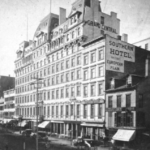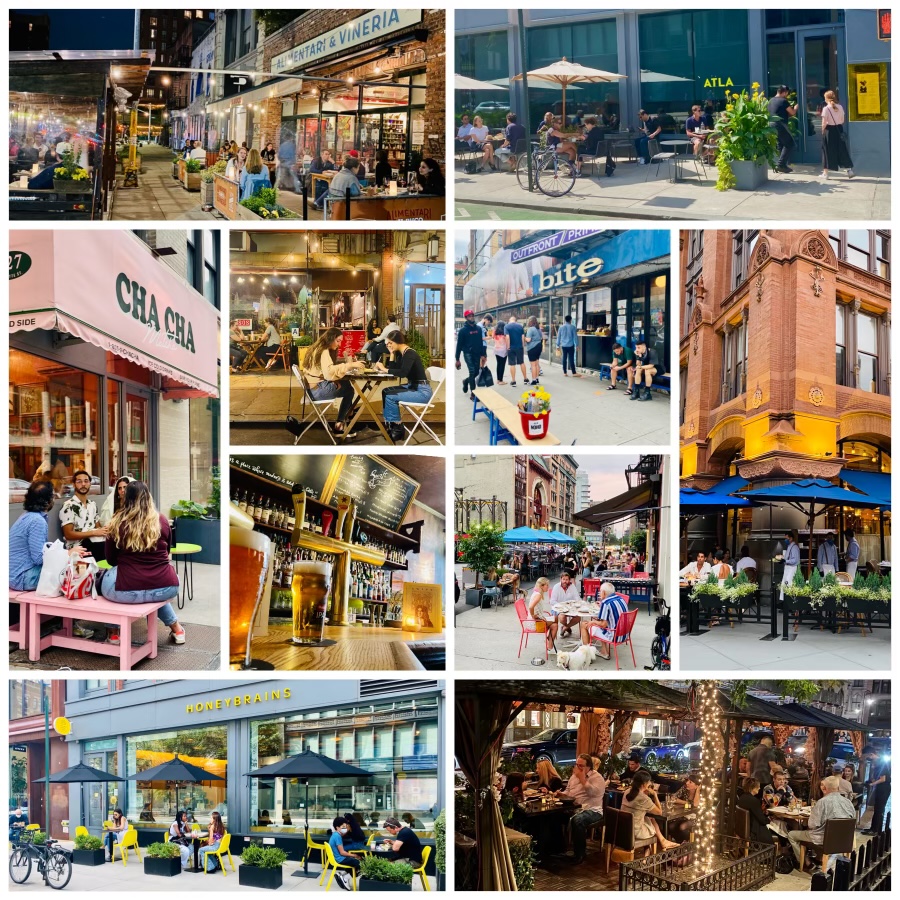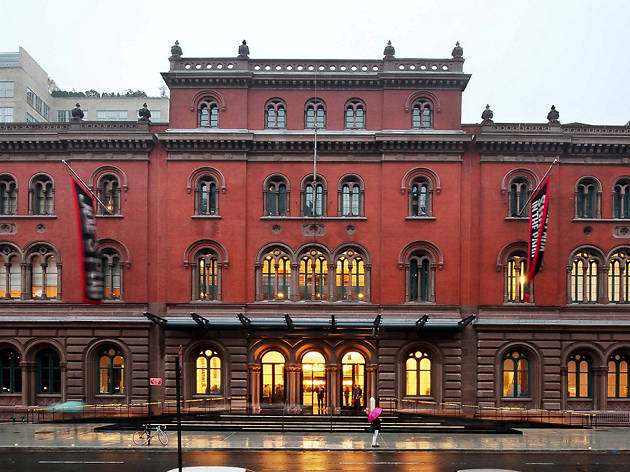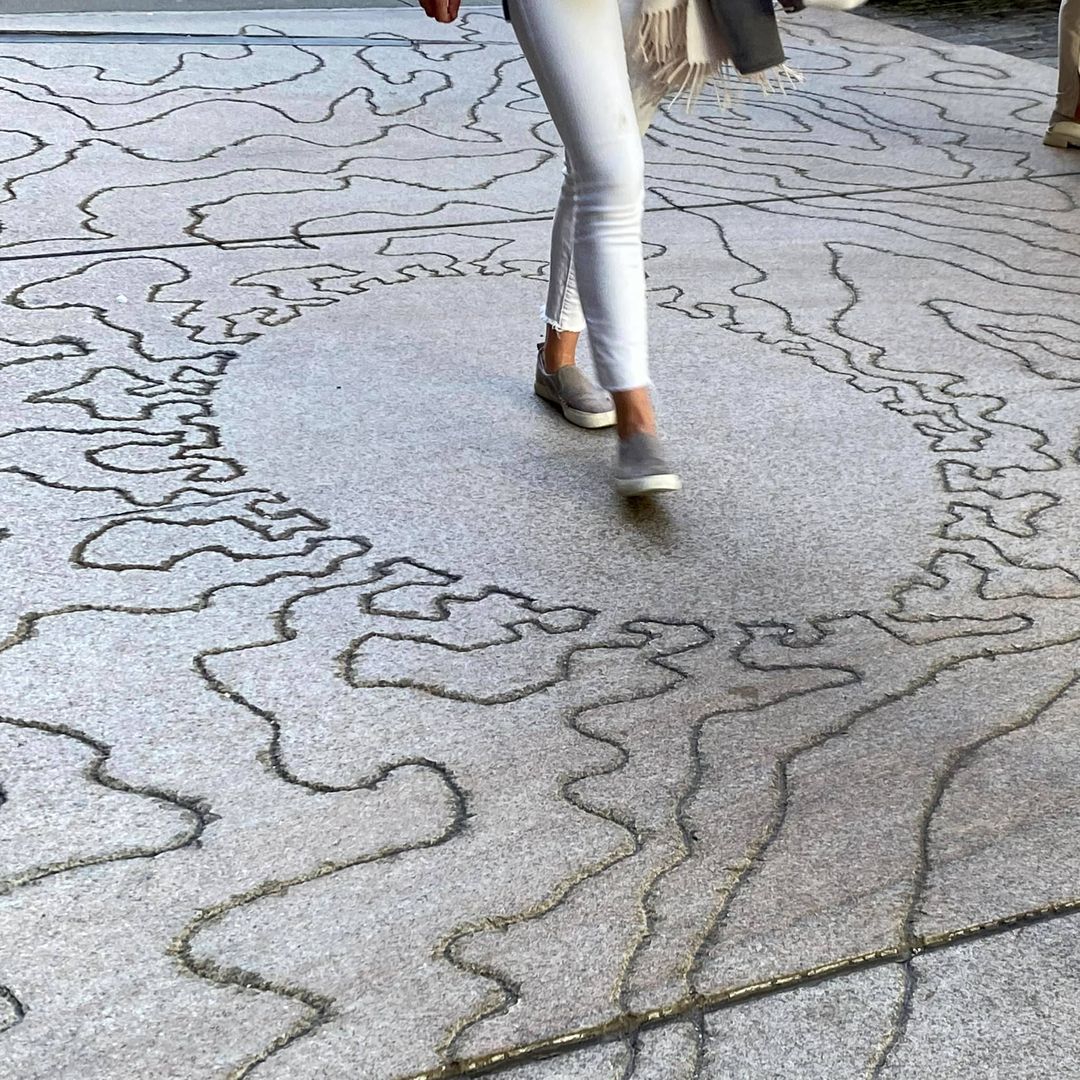
This article is republished from Village Preservation. Click here to learn more about Village Preservation. Click here to reach this article on their website.
In the 1970s, the University Hotel at 673 Broadway was fading away. What had once been the grandest hotel in the city in the 19th century, and a gathering place for the famous and wealthy, had become a welfare hotel for some 300 residents, “a cesspool of squalor and crime” according to The New York Times. And on August 3, 1973, the structure gave up: the hotel collapsed, killing four people trapped inside, and taking with it one of the most important artistic venues of the period, the Mercer Arts Center.
The hotel, located between West Third and Bond Streets, opened as the Grand Central Hotel in 1870. Designed by Henry Engelbert in the Second Empire style for wealthy local carpet manufacturer Elias S. Higgins, its eight stories under extravagant mansard roofs contained 630 rooms — making it the largest in the nation at the time — along with three grand dining rooms. The hotel became a major draw during the Gilded Age for the likes of Diamond Jim Brady and famed stars of the theater; it was also the site of one of the juiciest scandals of the era, when in 1872 robber baron Jim Fisk was shot and killed by former partner Edward Stokes in a quarrel over the affections of actress Josie Mansfield. In 1876, representatives from eight baseball clubs met there to form the National League. The site was rechristened the Broadway Central Hotel in 1892, a name that stuck for most of its existence.
The grandeur of the hotel started to vanish as the 20th century progressed, symbolic of the decline of the city around it. By 1969, owners Henry Drecher and Matilda Edwards converted it into the University Hotel, and started charging $5 a night to welfare clients. It was an eyesore for urban planners that presented a new opportunity for one of the area’s most successful cultural promoters, Art D’Lugoff.
D’Lugoff, who had seen success on nearby Bleecker Street with his Village Gate Theater, stepped in when the first two floors of the University Hotel — formerly a ballroom and catering area — became available. He chose to build a facility that would offer multiple performance spaces for different kinds of acts. Fronting an entrance at 240 Mercer Street, the Mercer Arts Center opened on December 20, 1971, featuring the Mercer Hansberry Theater and the Mercer Brecht on the main floor and four cabaret theaters and rehearsal space on the second.
The Times called the center “a Lilliputian-sized theater with the ambitions of Lincoln Center.” The complex hosted numerous successful productions, including an early staging of One Flew Over the Cuckoo’s Nest and Macbeth starring Rip Torn, one of the center’s co-founders along with Gene Frankel, Viveca Lindfors, Steina, and Woody Vasulka. To help pay for those theatrical productions as well as costly renovations needed for the site, the center opened its unused spaces to the burgeoning local fringe rock bands of the day. The New York Dolls held some of their earliest shows in the space and soon became regulars, and the Modern Lovers and Suicide also performed there.
Unfortunately, the success of the Mercer Arts Center did nothing to help the structural integrity of the building. The hotel’s facade on the Broadway side had been bulging since the start of 1973, and cracks had been appearing in walls throughout the theatrical complex. On the afternoon of August 3, the walls were groaning — “it was Panicsville there,” said then–Mercer owner Seymour Kaback. By 3:35 pm, Kaback had called hotel manager Joseph Cooper about the problem; Cooper tried and failed to reach an engineer to assess the situation. At around 5, shortly before performances were to begin, bricks were falling from the Mercer Arts walls. The hotel started to crumble at 5:10 pm, taking parts of some theater space with it. Soon, the building collapsed onto Broadway, spilling tons of debris on the street.
The Mercer Arts Center was never able to rebuild its downtown Lincoln Center. Both the hotel and 240 Mercer Street were declared unsafe and ordered to be demolished after the search for missing persons had concluded. The four plays taking place at the time — One Flew Over the Cuckoo’s Nest, El Grande de Coca-Cola, The Proposition, and Tubstrip— as well as the bands found new homes throughout the city. A seminal arts space for theater, music, and art was no more.
Today, the site is home to an NYU dormitory for its law-school students.





